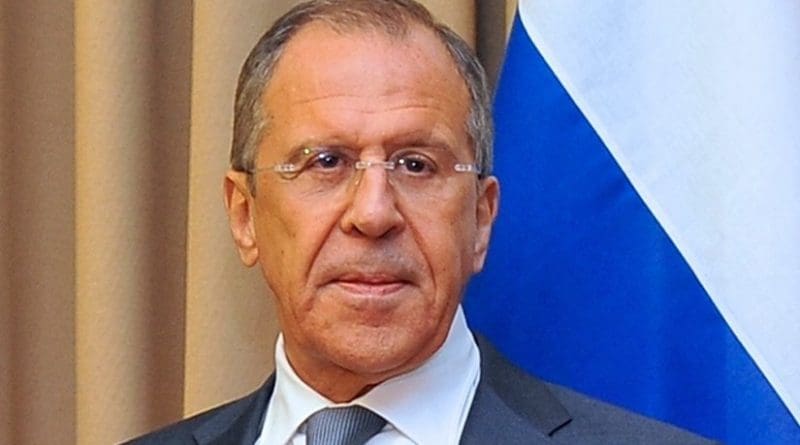A Circassian Breakthrough: Lavrov Wants To Work With Their International Association – OpEd
By Paul Goble
It is a measure of the remarkable success the Circassians have had over the last five years in raising the status of the issues of greatest concern to them that Russian Foreign Minister Sergey Lavrov for the very first time has indicated that he wants to work with one of their organizations, the International Circassian Association.
When Russia is confronted by a group that it views as marginal, Moscow first ignores it and then attacks it if it concludes that the attacks won’t work to the benefit of the group. But only if the Russian center concludes the group can’t be ignored does it express a desire to work with it, often the first stage in an effort by Moscow disorder the group or take control of it.
Since the Circassians attracted international attention in the run-up to the Sochi Olympiad, Russian media outlets have routinely attacked that group which seeks to have its expulsion from Russia in 1864 declared an act of genocide, to allow Circassians from the diaspora to return home, and to form a single Circassian republic in the North Caucasus.
Those attacks are now continuing; indeed, if anything, they are intensifying and trying to present the Circassian cause as a creation of Western and Israeli intelligence rather than as the product of the history of that five-million-strong people, ten percent of whom are still in Russia (kremlinpress.ru/news/analitika/cherkesskaya-karta-kto-razzhigaet-mezhnatsionalnuyu-nenavist/).
But despite that, Moscow has apparently decided that the Circassian issue has become one it can no longer leave to the propagandists alone and has decided both to cooperate with some Circassians to exploit one part of that nation against other parts and to use its influence or even control of that part as a means to promote Moscow’s line on Circassian issues.
That does not mean that the Circassians can relax their vigilance about Russian penetration given Moscow’s longtime success at subverting émigré groups, but it does mean that even Circassians who are not associated with the group Lavrov says he wants to cooperate with can only be encouraged by what has happened.
Earlier this week, Khauti Sokhrokov, the president of the International Circassian Association and someone many Circassians view with suspicion because of his pro-Moscow positions, noted that he had been invited to a meeting of NGOs at the Russian foreign ministry and had spoken with Lavrov (kavpolit.com/articles/mcha-27163/).
Responding to Sokhrokov’s pro-Russian speech, the Russian foreign minister noted that this was the first time Circassians had been present at a foreign ministry-NGO session and had “expressed the desire in the future to cooperate with the International Circassian Association and together with it strengthen ties with the Circassian diaspora for the good of [Russia].”

